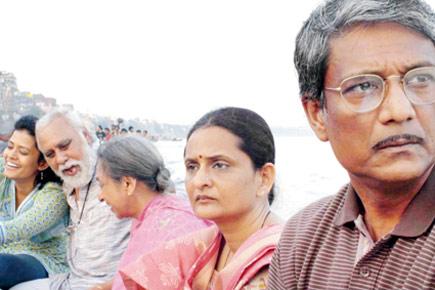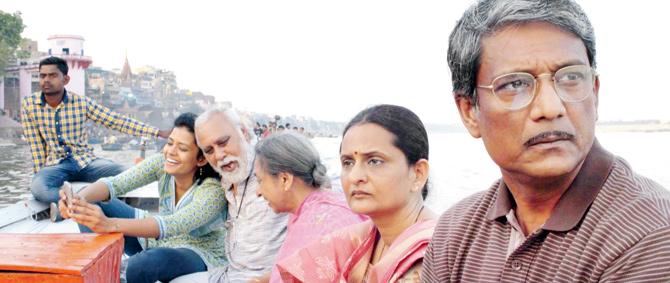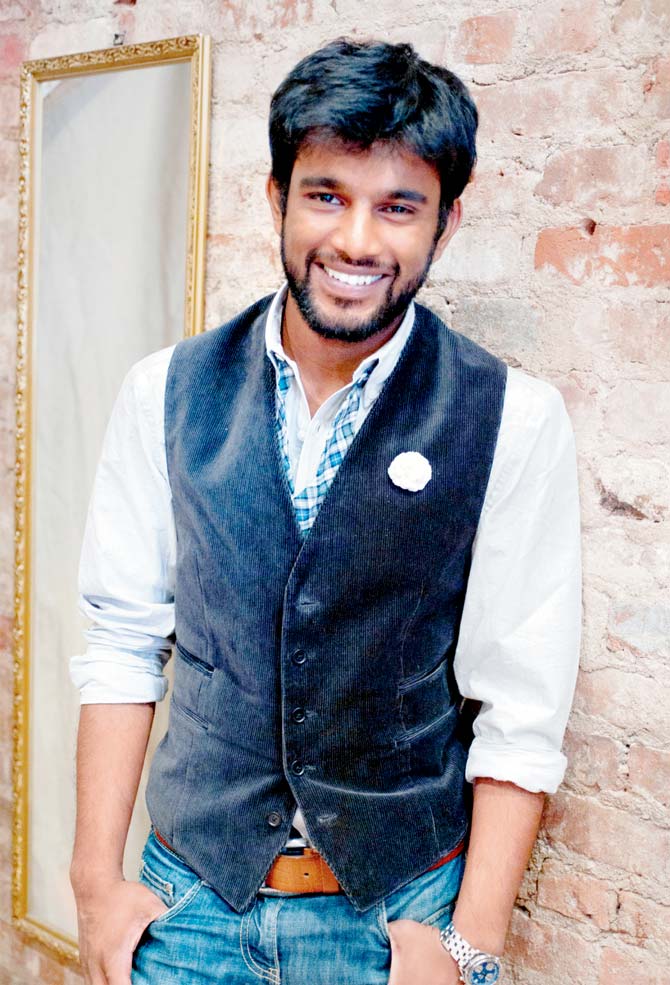The man everyone is raving about for making a stellar film on death is all but 25. Shubhashish Bhutiani on why he chose death and detachment for his debut feature


Film tells the story of the Kumar family, which is forced to embrace the death of the head of the family, Dayanand, portrayed by Lalit Behl
What if you woke up one day, and had this unusual feeling about your end being near? In the recently released Hindi drama, Mukti Bhawan, that's what happens with Dayanand Kumar, played by veteran actor Lalit Behl. On the dinner table, Kumar tells son Rajeev (Adil Hussain) and the family, about a recurring dream that makes him believe that he is done in for. He'd rather spend his last days in Varanasi, within the chambers of Mukti Bhawan (Hotel Salvation), he conveys to the family.
ADVERTISEMENT
The premise of the story seems strange, but for many believers of the Hindu way of life, achieving moksha (salvation) has closely been associated with the holy city that sits along the Ganges. What's stranger though is the existence of hotels that claim to be gateways to this redemption.

Shubhashish Bhutiani
For Mumbai-based writer-filmmaker Shubhashish Bhutiani, who is riding high on the success of his debut feature after it received two special mentions - Hussain for his performance and Bhutiani for the film - at the 64th National Awards last week, a chance encounter at a 'salvation hotel' back in 2013, led him to write this story. "A film is usually a culmination of things that happen around you. Back in 2013, my grandparents weren't going through the best time. I could see my family juggle responsibilities to take care of them. There was struggle. Around the same time, I went travelling to Varanasi, and happened to come across one such hotel, and was fascinated. When I began talking to the aged who resided there, I realised that they could be members of my own family," recalls 25-year-old Bhutiani.
Somehow these two stories came together and begged for attention. The young filmmaker, who at the time had just released a short titled Kush, which revolved around 17 children on a field trip during the 1984 riots, started researching his new project. "I only pursue ideas that nag at me for more than a month; this was one of those days," he recalls.
But, Bhutiani's intention wasn't to make a film. "It could have been a short story that I ended up writing, and never looked back at. I have a whole bank of those. I just wanted to enjoy the process of telling the story."
Despite zero direction, Bhutiani remembers being committed to the idea, making multiple visits to Varanasi. "I spoke to people who sold wood for the funeral pyre, those who ran the hotels and even the ordinary chaiwallah. The idea was very focused…I wanted to capture the ethos of the place and how death is significant to this otherwise, colourful city."
The film captures this culture of death with unexpected vibrancy. Rajeev is forced to take a long break from his job at an insurance company to accompany his father here: In this case, the squalid hotel - Mukti Bhuwan - where they take residence, gives Dayanand only 15 days. If he fails to die before the deadline, the hotel manager, a self-proclaimed clairvoyant pandit, takes the final call on whether he stays or leaves. As bizarre as it sounds, a hotel like this one exists in Varanasi.
"I took elements from various institutions, and said, I'd become the manager of the hotel that I would create. The tabelas, akhadas and wedding banquet that surrounds the hotel in my film exist in real life. We embraced these differences to portray the varied hues of the city, rather than reject or design something new."
Then, there is also the stellar team of Hussain and Behl, who bring alive the subtleties of the father-son relationship with so much honesty that it's hard to tell that this story isn't for real. Geetanjali Kulkarni and Palomi Ghosh, who play Hussain's wife and daughter respectively, also lend naturally to the tale of a family struggling to embrace death. That Bhutiani managed to amass a powerful cast for his first film, isn't lost to him. "When I started putting this film together, I had heard that a couple of people didn't want to work with me because I was too young. And, I was fine with that. In fact, I am selective about who I work with because I wanted to be around people I respect and who made me comfortable, especially when it came to making important decisions or asking questions. I wanted an environment free of hierarchy," he says.
Working on the concept of death, detachment and salvation wasn't an easy one, insists the young filmmaker.
"You tend to make a film when you are looking for answers to certain questions. You hope that by the end of it, you get closer to understanding it [the subject]. That's probably why I did this."
 Subscribe today by clicking the link and stay updated with the latest news!" Click here!
Subscribe today by clicking the link and stay updated with the latest news!" Click here!







